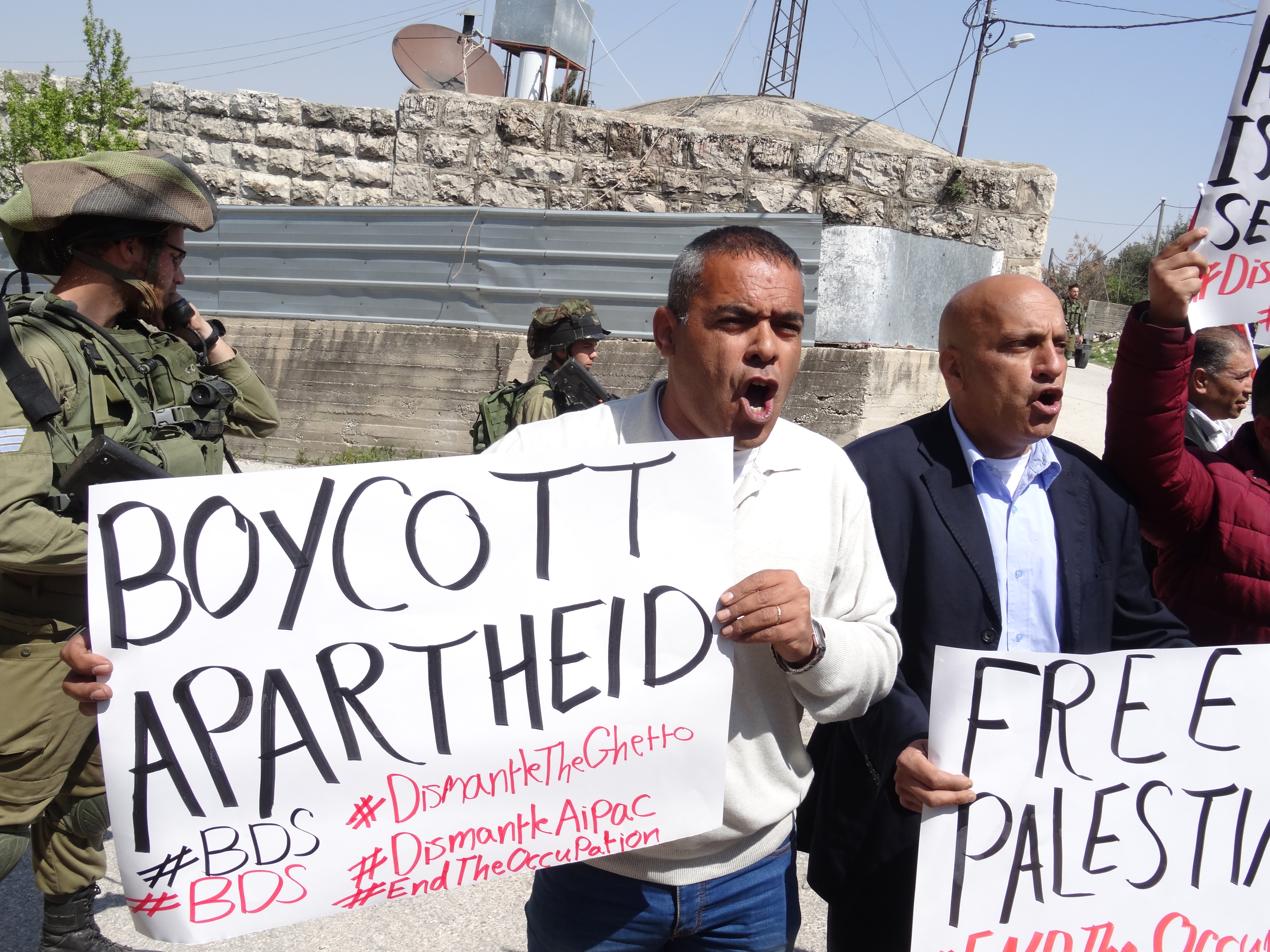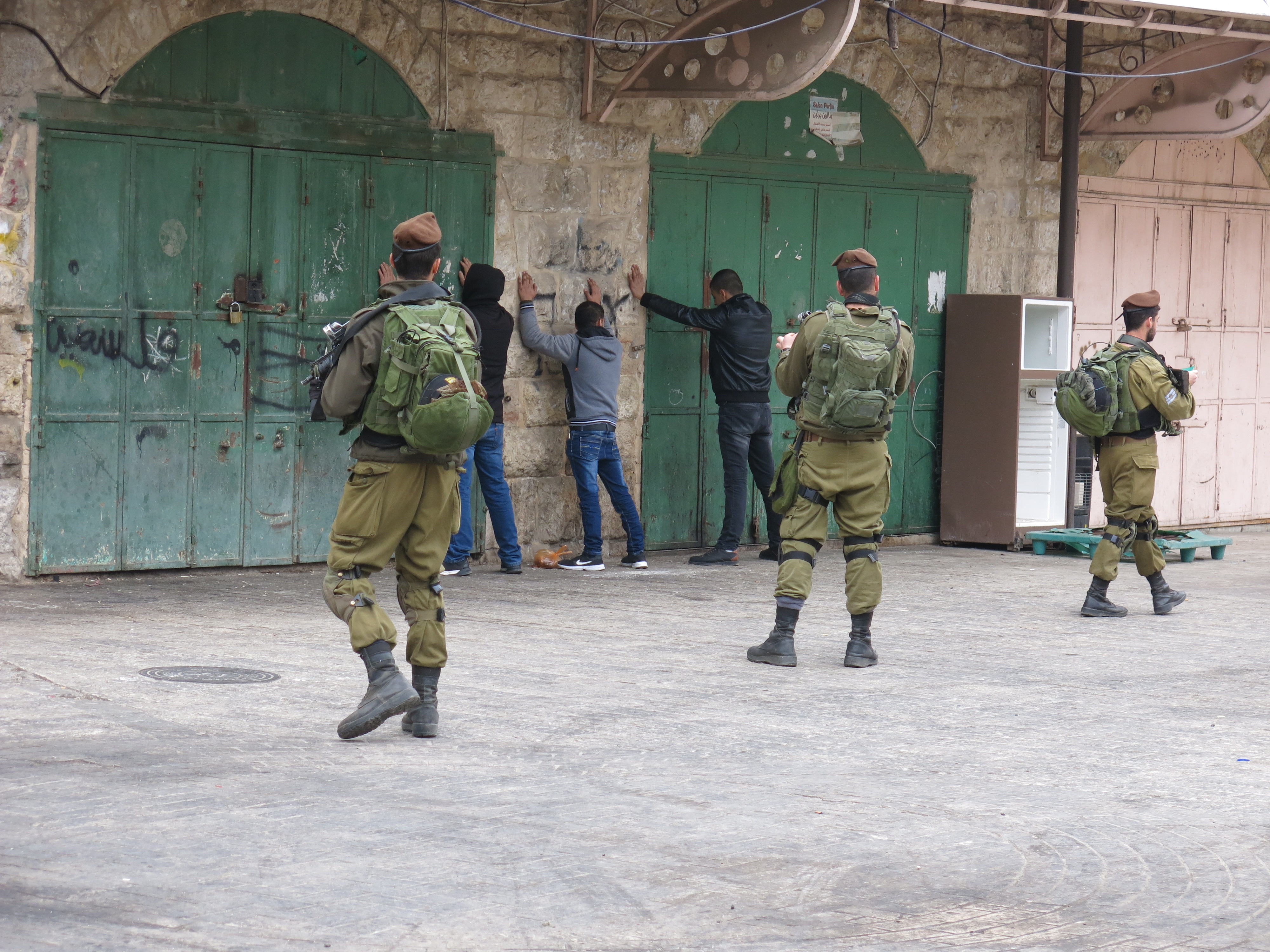Tag: Apartheid
-
Dozens protest against AIPAC in Hebron sunshine
26th March 2017 | International Solidarity Movement, al-Khalil team | Hebron, occupied Palestine Dozens of Palestinians gathered in Tel Rumeida, al Khalil, to protest against the annual AIPAC (American Israel Public Affairs Committee) conference held in Washington, DC. Lacking the freedom of movement to protest in DC, the people of Hebron still want their voices to be…
-
The fire under our feet: a journal piece
I’m OK. Actually, personally, my family and I are well, Alhamdililah! But I can feel the intensified fire under our feet. I know the feeling. And I know the explosion that comes after it. This week alone the Israeli apartheid government has escalated its actions, bombing Gaza daily while tightening the already lethal siege around…
-
Palestinians ID checked and searched during early morning incursion in Hebron souk
21st March 2017 | International Solidarity Movement, al-Khalil Team | Hebron, Occupied Palestine In the early morning of the 21st March a group of Israeli forces carried out ID checks and body searches on young Palestinian men and children on their morning commutes through the souk (old market) of Hebron. Two ISM activists were walking to…


